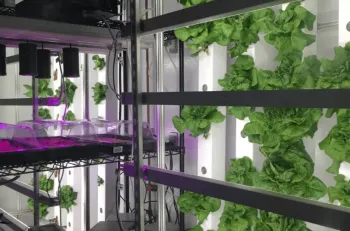Research initiatives are the smallest scale and shortest duration projects funded by IMS. They focus on early-stage visioning and team building through workshops and related activities.

Electrochemical Manufacturing and Recycling
This initiative focuses on understanding of fundamental science the electrochemical manufacturing and recycling processes and the applications in industrial practices.
Lead: Hailong Chen

Microscale Thermal Tech for Sustainability
This initiative brings together human thermal perception, design futuring, and systemic sustainability evaluation for climate change resilience.
Leads: Joe Bozeman, Noura Howell
Multifunctional Materials for Energy-Efficient Buildings
The goal of this research initiative is to advance the efficiency and sustainability of buildings (from homes to data centers) using a materials-to-systems approach.
Lead: Akanksha Menon

Precision Agriculture in Controlled Environments (PACE)
The PACE initiative envisions new paradigms in the management of light, water, and nutrients, enabling high-value precision agriculture in controlled environments.
Leads: Yongsheng Chen, Antonio Facchetti, Anju Toor

Solar Energy Harvesting and Conversion
This initiative is working to integrate photovoltaic, photodetectors, and related devices into materials-related research; energize research in these areas; and consolidate the expertise of the many research groups working on or around photovoltaics/ photodetectors.
Lead: Juan-Pablo Correa-Baena

Sports, Research, Innovation, and Technology
Georgia Tech's SPRINT initiative bridges the university's academic research community with its Athletics Association to advance sports-related research, innovation, and technology, aiming to make Atlanta a global leader in these fields.
Lead: Jud Ready

